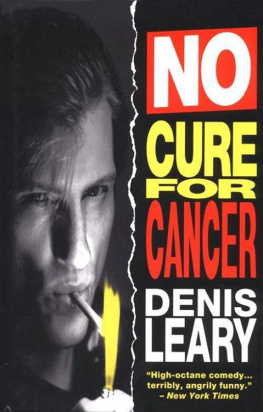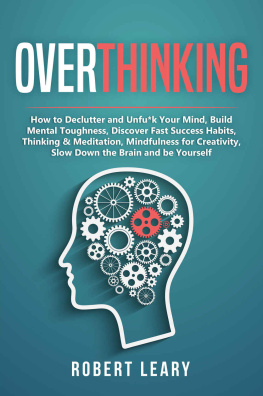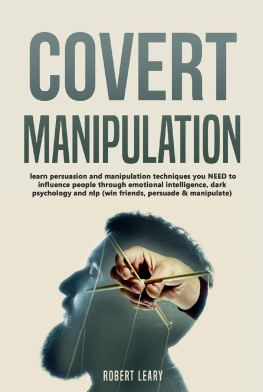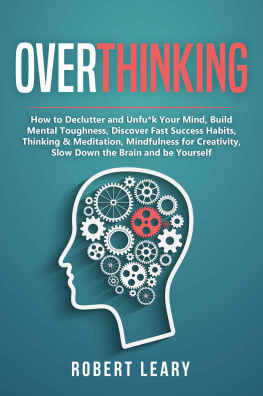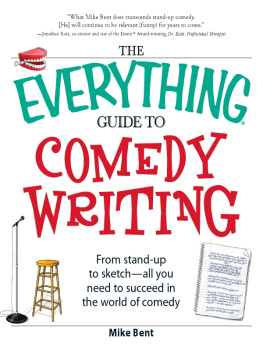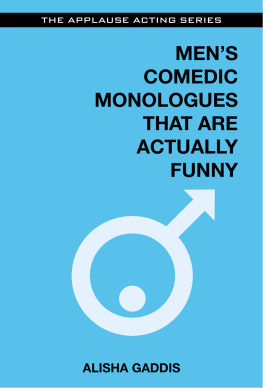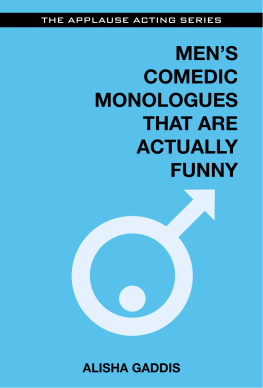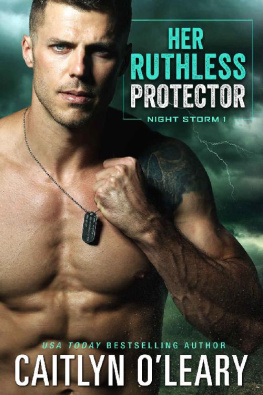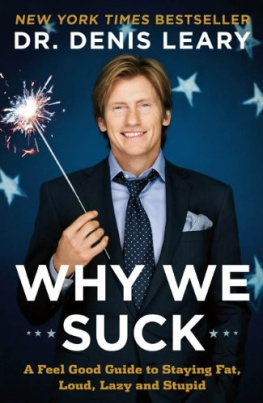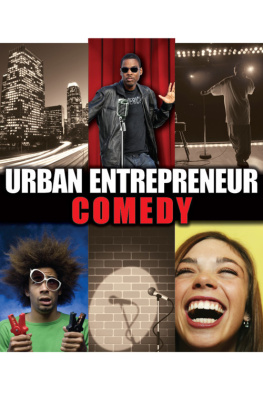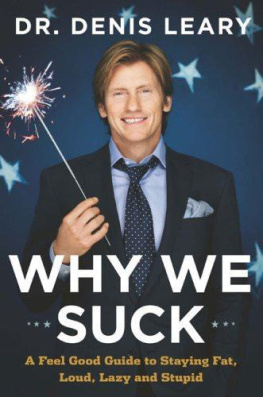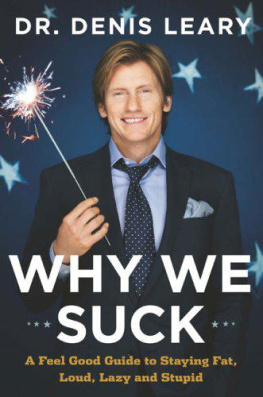Leary - No Cure for Cancer
Here you can read online Leary - No Cure for Cancer full text of the book (entire story) in english for free. Download pdf and epub, get meaning, cover and reviews about this ebook. City: New York, year: 1992, publisher: Anchor, genre: Detective and thriller. Description of the work, (preface) as well as reviews are available. Best literature library LitArk.com created for fans of good reading and offers a wide selection of genres:
Romance novel
Science fiction
Adventure
Detective
Science
History
Home and family
Prose
Art
Politics
Computer
Non-fiction
Religion
Business
Children
Humor
Choose a favorite category and find really read worthwhile books. Enjoy immersion in the world of imagination, feel the emotions of the characters or learn something new for yourself, make an fascinating discovery.
- Book:No Cure for Cancer
- Author:
- Publisher:Anchor
- Genre:
- Year:1992
- City:New York
- Rating:3 / 5
- Favourites:Add to favourites
- Your mark:
- 60
- 1
- 2
- 3
- 4
- 5
No Cure for Cancer: summary, description and annotation
We offer to read an annotation, description, summary or preface (depends on what the author of the book "No Cure for Cancer" wrote himself). If you haven't found the necessary information about the book — write in the comments, we will try to find it.
An uproarious and lacerating meditation on lifeand deathby celebrated comedian and actor Denis Leary.
Based on the writer-performers hit Off-Broadway show, this rapid-fire monologue sends up society and its illsdisease, drugs, crime, junk culture, the recovery movement, pious political correctness, urban life, and above all, our fear of mortalitywith wicked satire and insight.
High-octane comedy . . . terribly, angrily funny.The New York Times
Absolutely brilliant . . . the real cutting edge of American comedy.The Boston Globe
**
No Cure for Cancer — read online for free the complete book (whole text) full work
Below is the text of the book, divided by pages. System saving the place of the last page read, allows you to conveniently read the book "No Cure for Cancer" online for free, without having to search again every time where you left off. Put a bookmark, and you can go to the page where you finished reading at any time.
Font size:
Interval:
Bookmark:
NO CURE FOR CANCER
BY DENIS LEARY
EVERSION 4.0 / NOTES AT EOF
BACK COVER:
NO CURE FOR CANCER is an uproarious and lacerating meditation on life -- and death -- by a celebrated new voice on the performance scene. Based on writer-performer Denis Leary's hit off-Broadway show, this rapid-fire monologue sends up society and its ills -- disease, drugs, crime, junk culture, the recovery movement, pious political correctness, urban life, and, above all, our fear of mortality -- with wicked satire and insight.
Acknowledgements
I must thank the following people, without whose advice, ammunition and assistance No Cure for Cancer -- the show and the book -- would not have happened:
Kiwi, Blades, Noose, Cronk, Head, Fitzy, Sully, Doug, The Macs, Mike McCinn, Ann Lembeck, George Cilmore, Jim Serpico, C. C. Galloway, Chastity Phillips, Gary Hoffman, James Dixon, Glenn Schwartz, Michael O'Brien, Matt Dillon, Gail Parenteau, Regan Kennedy, Terry Quinn, Adam Roth, Ted Demme, Dan Strone, Chris Young, Alan Kannof, Colin Quinn, Tony V., Babe Ruth, Tony C., Bob Stanley, Joe Foy, Ace Bailey, Jon Stewart, Lise Mayer, Frank Skinner, Pamela Ross, Jason M. Solomon, Chris Phillips, David Baddiel, Jonathon Thoday, Richard Turner, Laurie Zaks, Mike Klinghoffer, Mary Salter, Bob Kreek, Jonathan Ross, Charlie Conrad, Katy Bolger, Dr. James Randall, Steve and Judy Howe, Ann Marie and Betsy.
A Note From the Director
Working with Denis Leary was the single worst experience of my professional life. I quit. I am leaving the theatre. I am leaving New York. I'm going to open a little wicker craft shop in the mountains and try to forget ever having met this vicious, untalented scum.
-Chris Phillips
Winooski, Vermont
September 1992
Introduction
In March 1990, I flew to London to perform on a BBC television show called "Paramount City." I was accompanied by my wife Ann, who was six months pregnant at the time. We arrived on a Thursday, I was scheduled to tape the show Saturday night and we would fly home on Sunday. A short little weekend overseas. Do some sightseeing, eat some bad English food, complain about the weather, curse the Queen and come home. The typical American's trip abroad. My wife's doctor had okayed the trip. Everything was in order.
Saturday morning, Ann's water broke. We rushed to the hospital in a black cab, where we were ever so politely informed that she was to stay in bed on round-the-clock observation for the next three months -- or until the baby was born, whichever came first. We had been in England less than forty-eight hours. I was already beginning to miss New York and hot pastrami and spring training and big cars and air conditioning and drive-by shootings and cable TV. Now we were going to have to settle in. Once Ann was stabilized, I ran off to the Paramount Theatre and my previous engagement.
The taping was a blur, although I vaguely remember someone mentioning the word "riot" backstage. I, of course, assumed they were referring to my performance, a seven-minute set of stand-up comedy. However, when I tried to leave the building, I was stopped by a phalanx of English policemen as a crowd of a few thousand people stormed past, stopping only to turn over a green Jaguar and set it ablaze. I was in the middle of the Poll Tax Riot -- some thirty thousand protesters rebelling against Margaret Thatcher's government by burning and beating and looting and leering. It was three hours before I was allowed to leave the theatre, and another on foot before I got back to the hospital.
The point of all this is to explain how No Cure for Cancer came to be. Due to my wife's hospitalization and the resulting extension of our weekend trip, we were around the following Monday to read the good reviews my performance on "Paramount City" received. The producers asked me back the following weekend. That performance got even more attention.
My son Jack was born two days later -- twelve weeks ahead of schedule. He was placed in intensive care and the doctors informed us that he would not be able to fly home for another five months.
While stuck in England, I met a very funny writer and comedian named David Baddiel, who introduced me to his manager, Jon Thoday. Jon had seen me on TV and suggested that, since I was in the U.K. for the duration, I should think about performing at the Edinburgh International Arts Festival, the oldest performing arts festival in the world. For three weeks every August dancers, actors, musicians, painters, alcoholics, drug addicts, film-makers and the French converge in Scotland and ply their wares. Jon shot off an impressive list of those who had appeared there: Bogosian, Cleese, Olivier, Cook, Moore, Sellers, Huston. And he encouraged me to put together a one-man show that he would produce. That's when the whole thing clicked. I had nothing but time on my hands -- no cable, no baseball, no gigs lined up. For years I had been telling myself I wanted to do a one-man show, and now the opportunity not only presented itself -- it rammed itself right down my throat.
I had tried the stand-up comedy circuit but never found it very satisfying. As an undergraduate at Emerson College in Boston, I had studied acting and writing, but acting parts were hard to come by for first- and second-year students since upper classmen had performance credits to fulfill. Those of us interested in acting needed an outlet and fortunately the Comedy Workshop, under the auspices of Emerson professor James Randall, provided it. Jim had been a blessing during my undergraduate years. He had helped to push the school to recognize and payroll the Workshop, which gave us creative freedom to write and perform everything from theatrical sketches to original one- and two-act plays, short films and video pieces. After graduation I had stayed on to teach in the Workshop, a job I much preferred to my other part-time jobs as a delivery driver and janitor and hotel switchboard operator and pourer of sulfuric acid into jars at a mixing plant on the Boston waterfront.
Yet I was soon frustrated. The classroom work with actors and writers was making me hungry to put something onstage. But if parts are hard to find in New York and L.A., in Boston they're virtually nonexistent. I did some work at the Charles Playhouse (one of those "yeah, you got the part -- by the way, can you also paint scenery and sell tickets and clean the toilet?" theatrical experiences), but that was about it.
Several of my Emerson classmates were working as stand-up comics. The money was minuscule then, but they were getting onstage for ten to fifteen minutes five or six times a week. I got up the nerve and signed the call sheet one night. It was one of the worst experiences of my life. I had written a piece about drugs or drinking or death, I can't remember the subject matter, but I do remember that it required me to roll around on the stage writhing and moaning. At one point I looked up and saw rows of puzzled-looking people staring down at me.
I remember their silence. I remember the emcee pointing to his watch and waving frantically at me. I remember sweating and thinking how remarkable it was that I was soaking wet on the outside but had not one drop of moisture in my mouth. I remember standing backstage, frozen against a wall, for about an hour. I can't remember ever feeling that bad about anything.
So, of course, I went back for more the next night, and night after night after that -- screaming and ranting and rolling and sweating. Eventually -- very eventually -- I got a laugh.
I became a regular at the comedy clubs and occasionally got the odd paid set. Boston comics like Don Gavin, Steve Sweeney or Lenny Clarke would give me ten minutes in one of their headlining shows. They didn't care if I sucked. They'd been there themselves. They knew that stand-up comedy is an acting class that takes place onstage in front of a live audience, that you cannot learn the skill unless you're on your feet in front of a sea of faces waiting for the next thought to pop into your head and out of your mouth. That's what I love about stand-up -- the rush of making it happen now, right now. Immediate action. Immediate response.
Font size:
Interval:
Bookmark:
Similar books «No Cure for Cancer»
Look at similar books to No Cure for Cancer. We have selected literature similar in name and meaning in the hope of providing readers with more options to find new, interesting, not yet read works.
Discussion, reviews of the book No Cure for Cancer and just readers' own opinions. Leave your comments, write what you think about the work, its meaning or the main characters. Specify what exactly you liked and what you didn't like, and why you think so.

